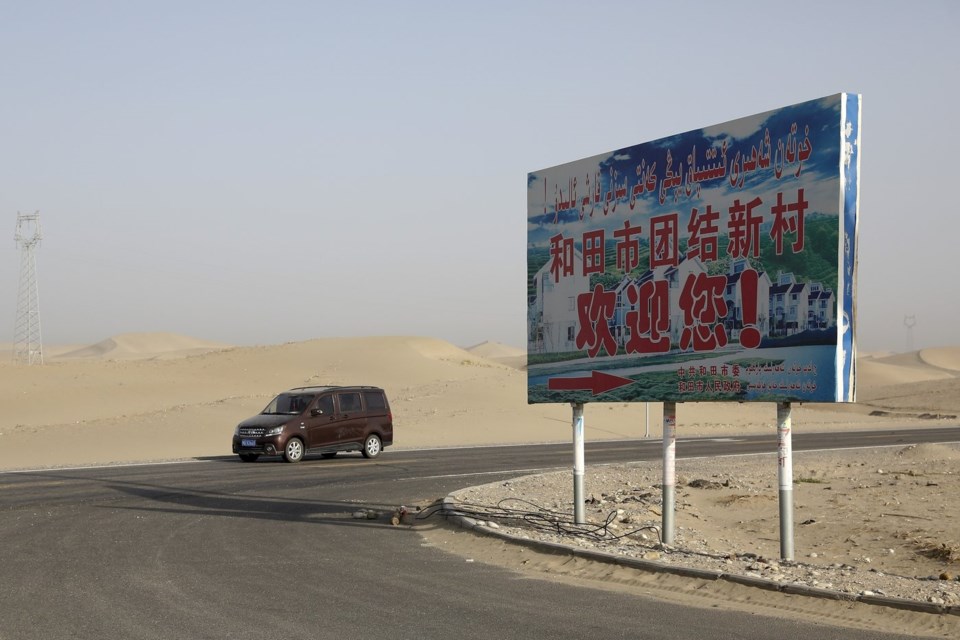WASHINGTON (AP) — President Donald Trump announced Wednesday that the United States will get magnets and rare earth minerals from China under a new trade deal and that tariffs on Chinese goods will rise to 55%.
In return, Trump said, the U.S. will provide China “what was agreed to,” including allowing Chinese students to attend American colleges and universities. The Republican president had recently begun to clamp down on the presence of Chinese nationals on U.S. college campuses.
The new 55% tariff rate would mark a meaningful increase from the 30% levy set in Switzerland during talks in May.
“OUR DEAL WITH CHINA IS DONE, SUBJECT TO FINAL APPROVAL WITH PRESIDENT XI AND ME.,” Trump wrote Wednesday on his social media site.
He said full magnets and any necessary rare earths will be supplied up front by China.
“WE ARE GETTING A TOTAL OF 55% TARIFFS, CHINA IS GETTING 10%. RELATIONSHIP IS EXCELLENT!” Trump wrote.
Senior U.S. and Chinese negotiators announced late Tuesday in London that they had agreed on a framework to get their trade negotiations back on track after that threatened to derail them.
The announcement came at the end of in the British capital that wrapped up late Tuesday.
It came as an international rights group said that several global brands are among dozens of companies at risk of using forced labor through their Chinese supply chains because they use critical minerals or buy minerals-based products sourced from the far-western Xinjiang region of China.
The report by the Netherlands-based Global Rights Compliance says companies including Avon, Walmart, Nescafe, Coca-Cola and paint supplier Sherwin-Williams may be linked to titanium sourced from Xinjiang, where rights groups allege the Chinese government runs coercive labor practices targeting and other Turkic minorities.
The report found 77 Chinese suppliers in the titanium, lithium, beryllium and magnesium industries operating in Xinjiang. It said the suppliers are at risk of participating in the Chinese government’s “labor transfer programs,” in which Uyghurs are forced to work in factories as part of .
Asked about the report, the Chinese Foreign Ministry said that “no one has ever been forcibly transferred in China’s Xinjiang under work programs.”
The named companies didn’t immediately comment on the report.
The Associated Press




